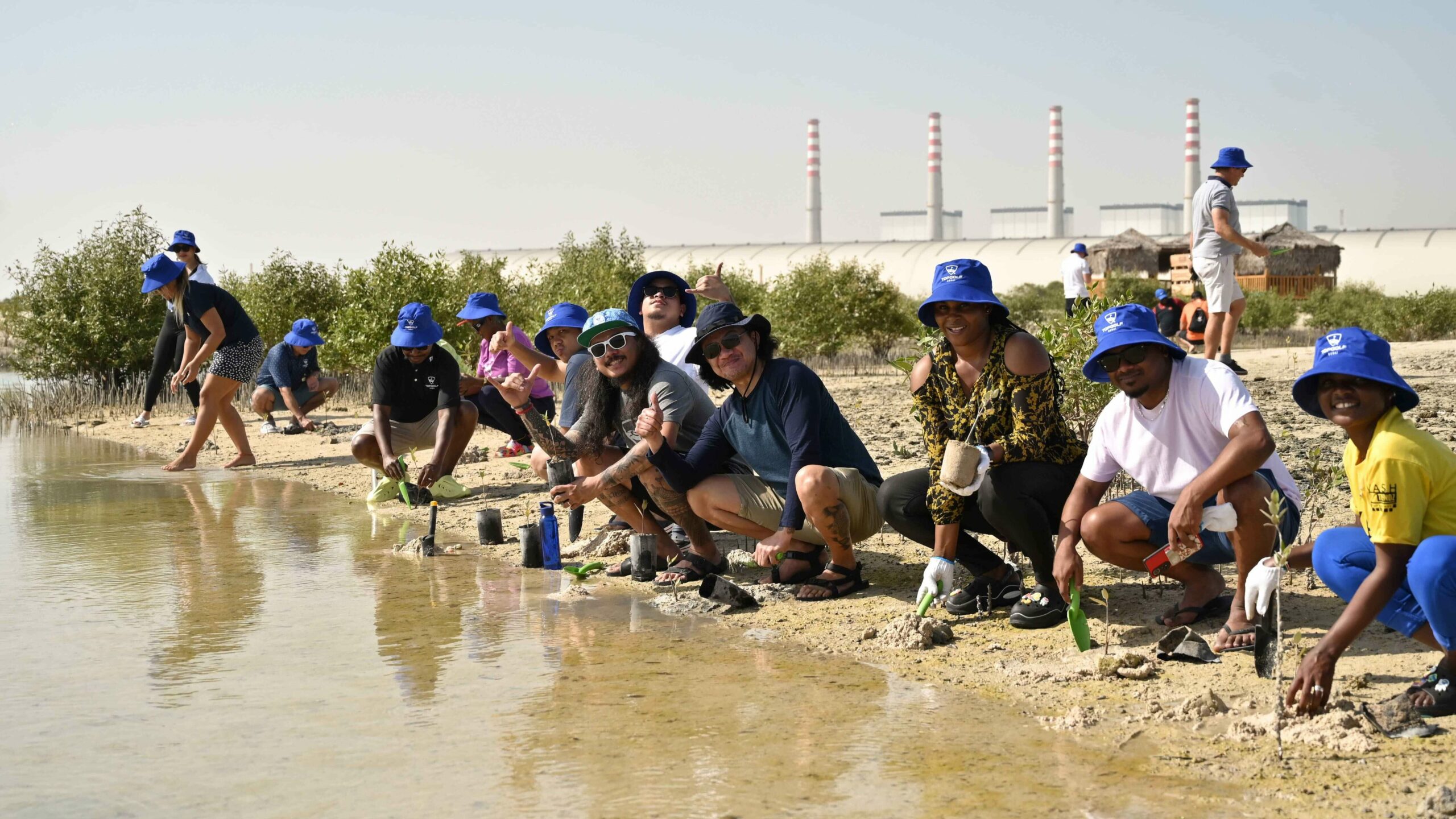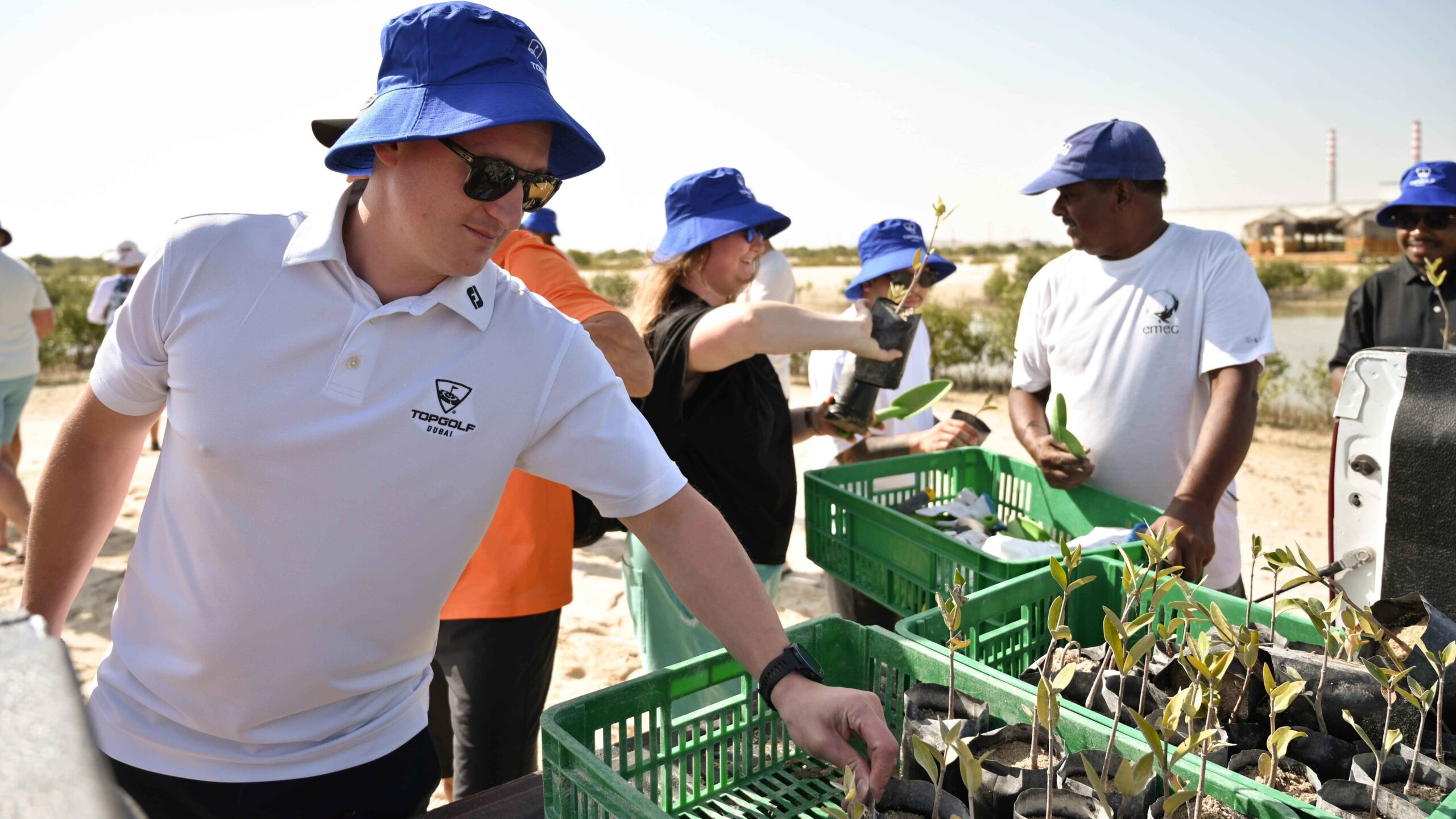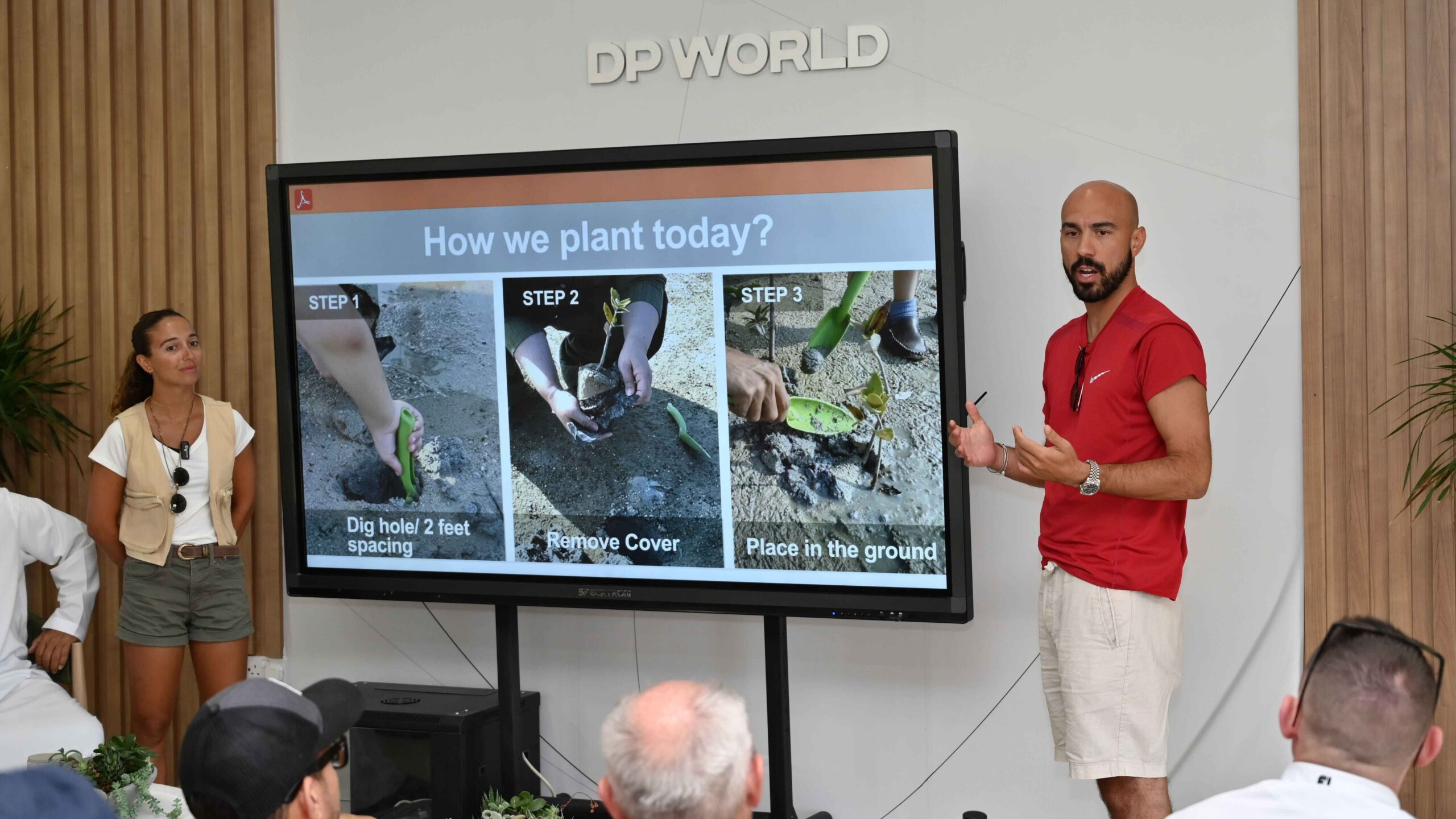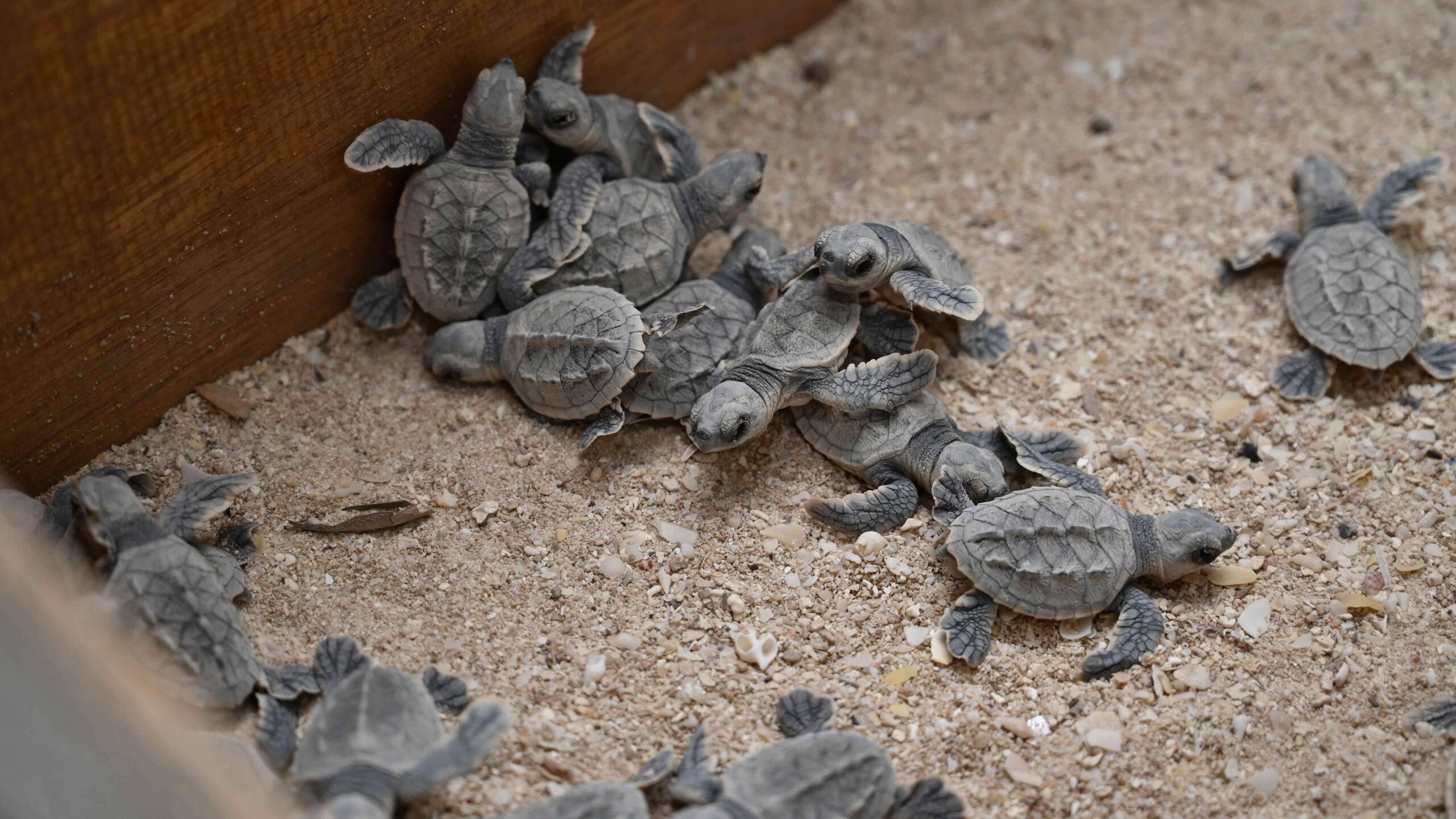Dubai Golf is stepping up its sustainability efforts by partnering with the Emirates Marine Environmental Group (EMEG) to protect the Emirati coastline through the planting of ecologically beneficial mangroves and the release of critically endangered Hawksbill Turtle hatchings.
Guided by the Emirates Marine Environmental Group, team members from Dubai Golf, Topgolf Dubai, Dubai Creek Golf and Yacht Club, Emirates Golf Club, and Jumeirah Golf Estates gathered at the Jebel Ali Marine Reserve to plant new mangroves.
The reserve serves as a hub for developing and organising educational camps for schools, community members, and corporate groups, intending to increase awareness and understanding of environmental issues.
As it stands, the Jebel Ali Marine Reserve houses over 1.5 million mangrove plants, with over 300,000 planted in 2023 alone. The UAE has been making significant strides in conservation and sustainability, aiming to plant over 100 million new mangroves along the coastline in the future.
“Conserving the ecosystem in the UAE is essential to longevity, and an important element of our business practices,” stated Chris May, CEO of Dubai Golf. “It’s a constant learning curve for all of us. I’m proud that representatives from all our golf clubs in Dubai were present at this event to plant crucial mangrove plants and demonstrate how important conservation is for future development.”
“The planting of these mangrove plants is essential to the flourishing of all ecosystems in Dubai, as they absorb four times more carbon dioxide than a terrestrial plant. They are also the ideal plant to restore coastal habitats,” added Morea Tomasi, Director of Marine Conservation projects at EMEG.
“The planting of the mangroves is just the beginning. Small steps in the right direction can lead to huge changes to ensure a greener approach to the future of Dubai. It is very important for us to continue working with organisations such as Dubai Golf, to create a greater platform and raise awareness of the need to future-proof our coastlines.”
Mangroves are trees that thrive in salty water and grow along coastlines, where they play a vital role in stabilising soil and shielding coastal communities from sea erosion.
These trees help combat climate change and support ecosystems by providing habitats for various species of fish, birds, and insects. They are also essential for capturing and storing carbon.
The event at the Jebel Ali Sanctuary kicked off with presentations by EMEG President, Major Ali, and Marine Director, Morea Tomasi, about the significance of mangroves.
A demonstration was given on how to properly plant the mangroves along with a safety briefing. Then, seven representatives from Dubai Golf clubs got to work.
Besides planting mangroves, EMEG also focuses on the monitoring and preservation of Hawksbill Turtles. The reserve’s beaches are protected nesting sites, ensuring the turtles can breed without their nests being threatened by predators like foxes.
Once the baby turtles hatch safely, the EMEG team releases them into the wild. The Dubai Golf team helped to release a group of hatchlings into the sea as part of the event.
This mangrove initiative and the release of turtle hatchlings fit into Dubai Golf’s larger sustainability and climate change awareness plan, which includes adding more solar panels and eliminating plastic goods.
EMEG’s mission is to preserve regional biodiversity by focusing on five key areas: protecting endangered wildlife, participating in conservation efforts, advancing scientific research through collaboration, promoting environmental education within the local community, and conserving fragile ecosystems for future generations.





